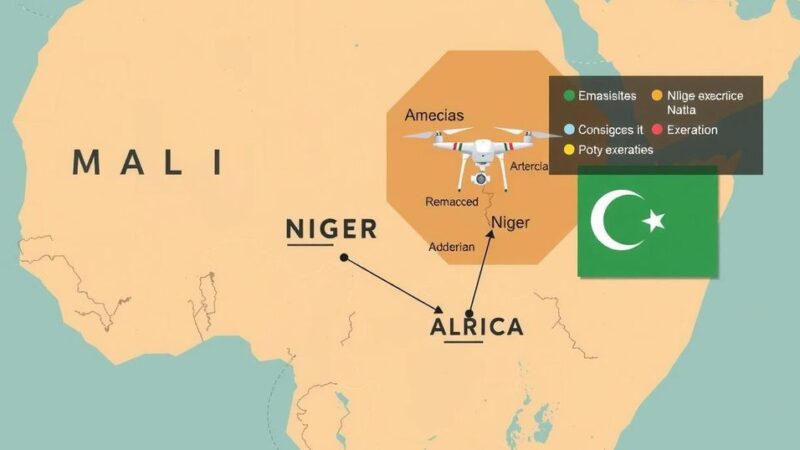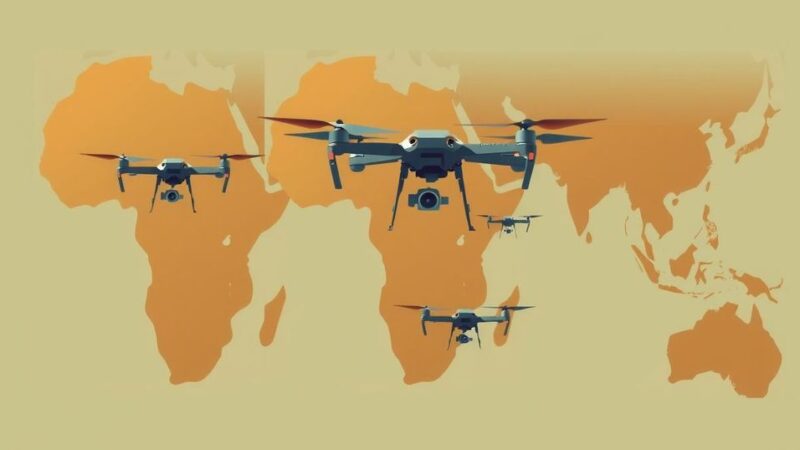This article discusses Qatar’s initiatives in AI and cloud computing as part of its National Vision 2030, highlighting investments in digital innovation, the launch of the Fanar language model, and collaboration with Huawei. The emphasis on emerging technologies and a supportive startup environment aims to position Qatar and the GCC as leaders in the digital economy.
Doha, Qatar, is witnessing substantial growth opportunities for investors due to its commitment to economic diversification. The country is heavily investing in artificial intelligence (AI) under its National Vision 2030, facilitating research initiatives through institutions like Qatar Computing Research Institute (QCRI) to enhance AI deployment in healthcare, finance, and smart cities. Dr. Zhu Shenggao, Vice President of AI at Huawei Cloud Middle East and Central Asia, emphasized this during an interview with The Peninsula.
The introduction of the Fanar local large language model has bolstered regional AI capabilities, while innovations in predictive analytics, automation, and public services are significantly contributing to economic expansion. Dr. Shenggao elaborated on how digital advancements are creating growth opportunities in AI, cloud computing, and other emerging technologies within Qatar and the surrounding region.
Cloud computing adoption in Qatar is accelerating as businesses upgrade their IT frameworks. The collaboration between Qatar and Huawei focuses on developing sovereign cloud solutions and high-performance computing (HPC) data centers that enhance AI, big data, and machine learning projects. Across the Gulf Cooperation Council (GCC) region, there is a strong shift toward 5G, IoT, blockchain, and robotics, which are instrumental in powering smart cities and sustainable industries.
These technologies enable progress in areas such as autonomous vehicles, smart infrastructure, and remote healthcare services. Moreover, blockchain technology assists in secure transactions and effective supply chain management. As noted by Dr. Shenggao, Huawei Cloud’s Everything as a Service strategy comprises Infrastructure as a Service, Technology as a Service, and Expertise as a Service.
Dr. Shenggao highlighted the global accessibility of Huawei Cloud’s KooVerse, which provides unified storage, computing, networking, and security services across 93 availability zones in 33 regions, benefitting over 170 countries. This initiative allows enterprises to access Huawei Cloud and global markets swiftly without the need for establishing their own data centers or reinvesting in foundational technologies.
Qatar is nurturing a startup-friendly ecosystem supported by initiatives from Qatar Science & Technology Park (QSTP), the Qatar Investment Authority’s tech investment fund, and collaborations with industry leaders like Huawei to build cloud and AI frameworks. Such investments are positioning Qatar and the GCC at the forefront of digital innovation, which unlocks new business prospects, enhances efficiency, and shapes the future landscape of the digital economy.
As part of its strategic evolution into a knowledge-based economy aligned with Qatar National Vision 2030, the country prioritizes developments in its ICT sector. It has identified six key elements—national innovation strategies, elevated levels of research and development (R&D), and diverse funding avenues for small and medium enterprises (SMEs)—as pivotal for creating and sustaining a thriving startup environment.
In summary, Qatar’s ambitious investment in AI and cloud computing under its National Vision 2030 is fostering economic growth and creating new opportunities for investors. The collaboration with Huawei and advancements in various technologies are positioning Qatar and the GCC as leaders in digital innovation. A focus on developing a robust ICT sector and a supportive startup ecosystem underpins this transformation, promising to realize the potential of a knowledge-based economy.
Original Source: thepeninsulaqatar.com






